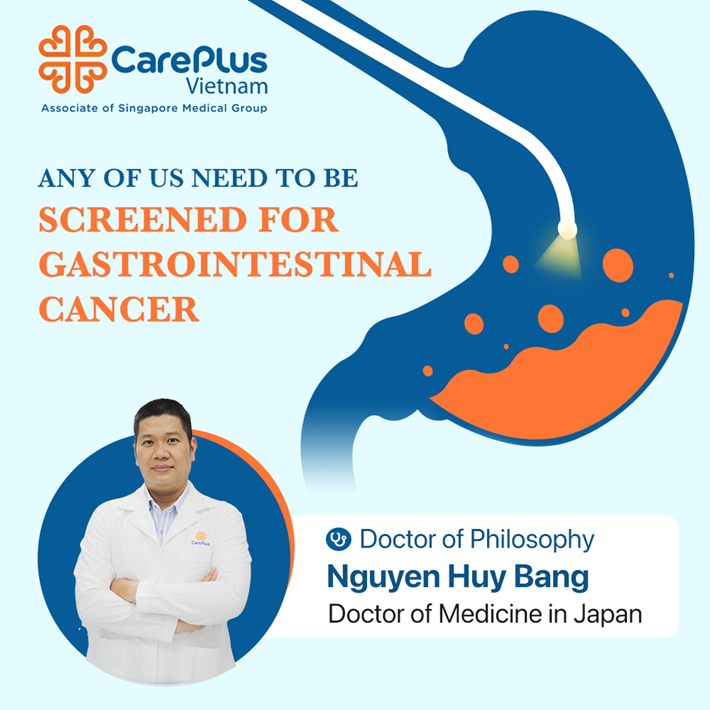Anyone of we need to diagnose cancer
Digestive tract diseases are a common problem in the community, especially in today's modern life. The disease often progresses silently but causes many dangerous complications, more serious can lead to cancer or death.

10/6/2022 8:58:01 AM
Any of us can screen for gastrointestinal cancer.
The recommended age for people in the middle-risk group to start screening for esophageal, stomach, and colorectal cancer is currently 40-45 years old.
Some ongoing research indicates that young people between the ages of 30 and 35 are also more likely to develop stomach cancer, so early screening is appropriate.
After the first screening, the doctor will base on the results, along with the personal and family history, to advise on the time of the next screening. Subjects in the high-risk group for stomach and colon cancer should consult directly with their doctor to have an individual screening strategy.
- People with family members (grandparents, parents, siblings) suffering from digestive diseases such as esophageal cancer, stomach cancer, colorectal cancer.
- People who have an unhealthy lifestyle and diet such as: often smoking, drinking alcohol, eating a lot of fried food, hot spicy food, etc.
- People with factors that increase the risk of digestive cancer include: having polyps, having stomach/colon ulcers, having H.P bacteria
The above subjects are cases of high risk of gastrointestinal cancer, so it is necessary to have regular check-ups, even health checks, to screen for gastrointestinal cancer more than the general population (as directed by the doctor). doctor) to promptly detect abnormal signs in the digestive system.
Currently, CarePlus International Clinic is becoming a prestigious address chosen by customers to screen for gastrointestinal cancer. With a full range of advanced machinery and equipment, bringing together experienced and highly skilled doctors and nurses, confident in mastering endoscopic techniques to ensure timely diagnosis and intervention. , gentle, less invasive.